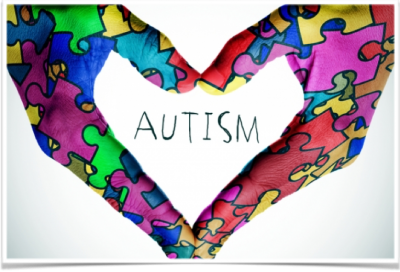The number of students with autism on our caseloads is rising. It can be difficult to manage all of the different students that present in many different ways with different needs.
This is why a whole team approach is critical in treating children with autism. For anyone who regularly treats children with autism we have all had those cases where we feel stuck. We feel like we are not making adequate progress and feel frustrated. Being in regular communication with all members of the IEP team can help us from this feeling of getting stuck and can also help us to a faster solution and faster carryover to all settings.
On our teams we have (but not limited to):
✦ Occupational Therapist- working on regulation, centering of the body, and completing activities of daily living, the classroom
✦ Teacher(s)- adjusting the curriculum in a way that facilitates the learning of the child, managing the communication, sensory, and motor needs of the child in the classroom
✦ Parents- helping the child carryout a daily routine in which they can be as independent as possible
✦ Physical Therapist- working on improving participation in daily routines, acquiring motor skills, developing better coordination, and developing motor imitation skills.
All of these tasks involve attention and communication. Therefore, it is critical that as the Speech-Language Pathologist we are communicating with each team member on how to incorporate the child’s speech and language needs into every part of their day.
We all know that team collaboration is best but the question comes in of how do we do this with limited hours in the day and demanding caseloads. Here are some ideas:
• Ongoing communication document (i.e., google document, binder, email chain) when face to face collaboration is not possible
• Get a list of the classroom units at the beginning of the year: Program AAC devices or make communication boards ahead of time and give a copy to as many team members as possible.
• Ask for vocabulary lists: prime as well as support them in the therapy room.
• Train all team members in AAC: One after school meeting can go a long way in forming a foundation for AAC in all settings.
• Adaptive books: They are on many websites and are great for adapting the curriculum.
• Don’t forget the power of the push in session: Model how to use the child’s mode of communication to address/access the curriculum.
• Paras!: Have them come to your sessions (when they can) to model for them to help them understand your goals for the student.
• Parents: the school setting is difficult to get parent buy in and carryover. Encourage them to come in and watch a session. If they are unable to do so send home materials to use with their child. Make your suggestions small and manageable (i.e., start with a certain time of the day to get comfortable and then expand, such as meal time and incorporating a new communication board or AAC device for requesting and protesting)
At the end of the day we need all team members’ input to ensure we are looking at the whole child and helping them to be as independent and successful as possible. This starts with all team members understanding each other’s goals and how they can be implemented into all activities.
Author: Megan Grimlsey, M.S. CCC-SLP
References:
https://www.moveforwardpt.com/SymptomsConditionsDetail.aspx?cid=a6482e75-65c6-4c1f-be36-5f4a847b2042#HowCanPhysicalTherapistHelp
Photo: https://www.rxwiki.com/news-article/heres-what-you-need-know-about-autism-spectrum-disorder

